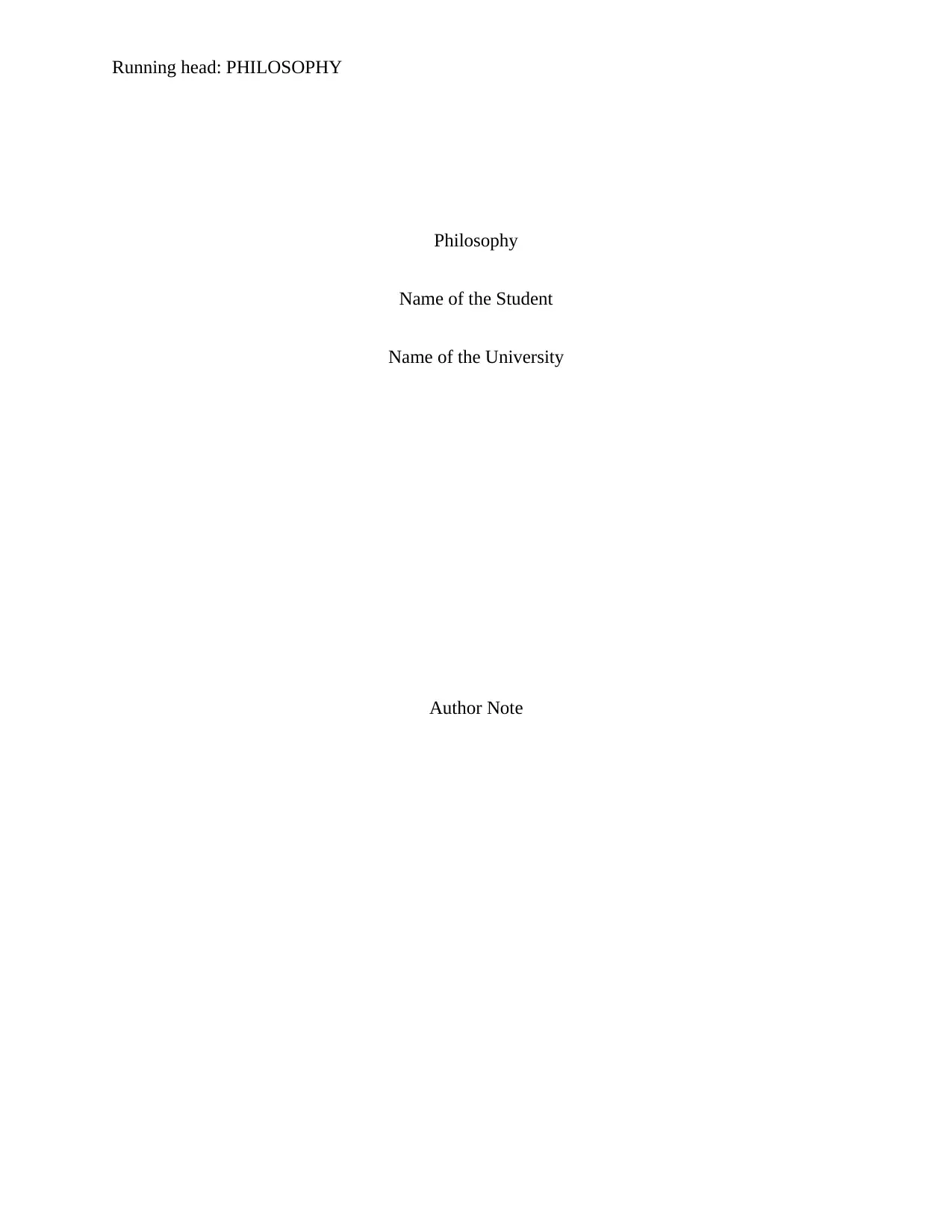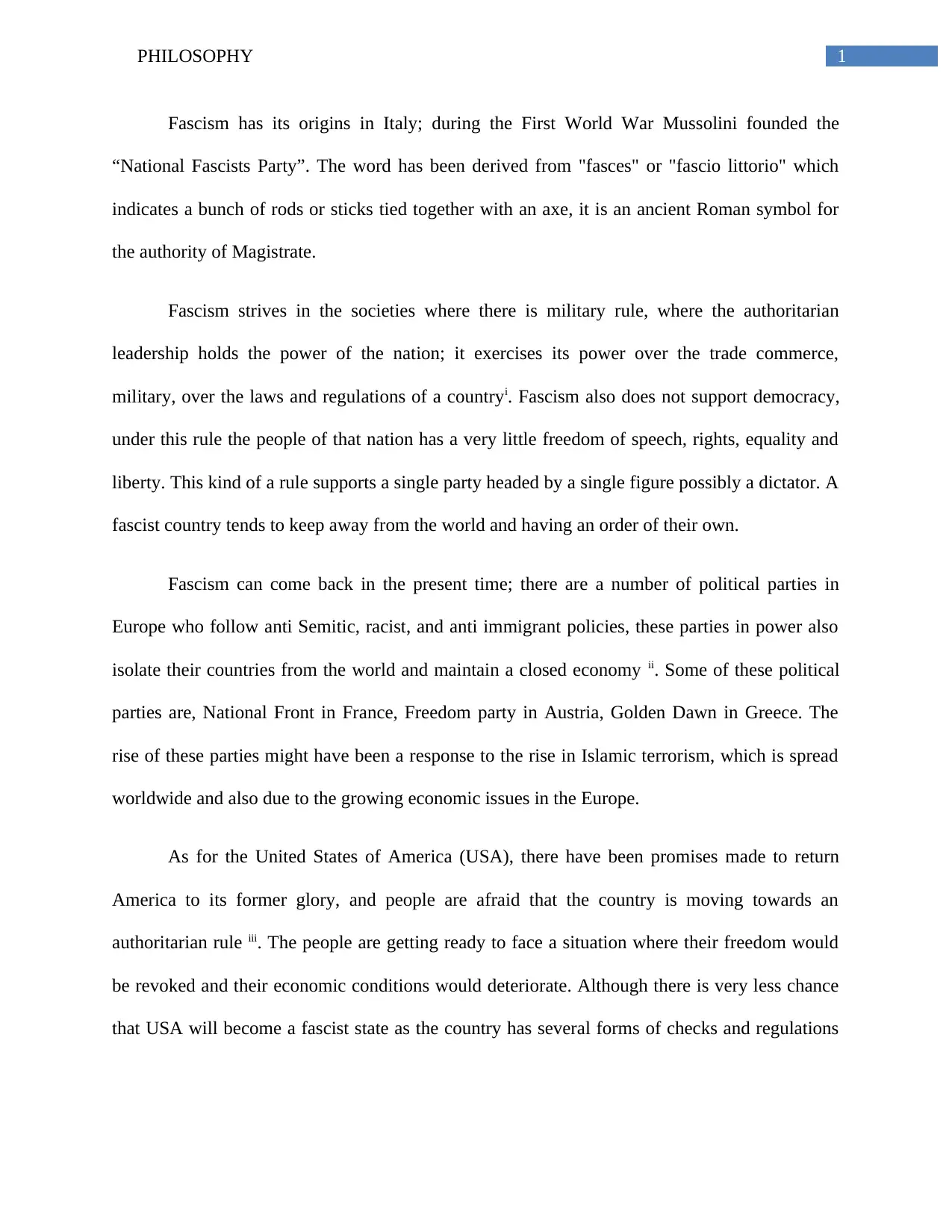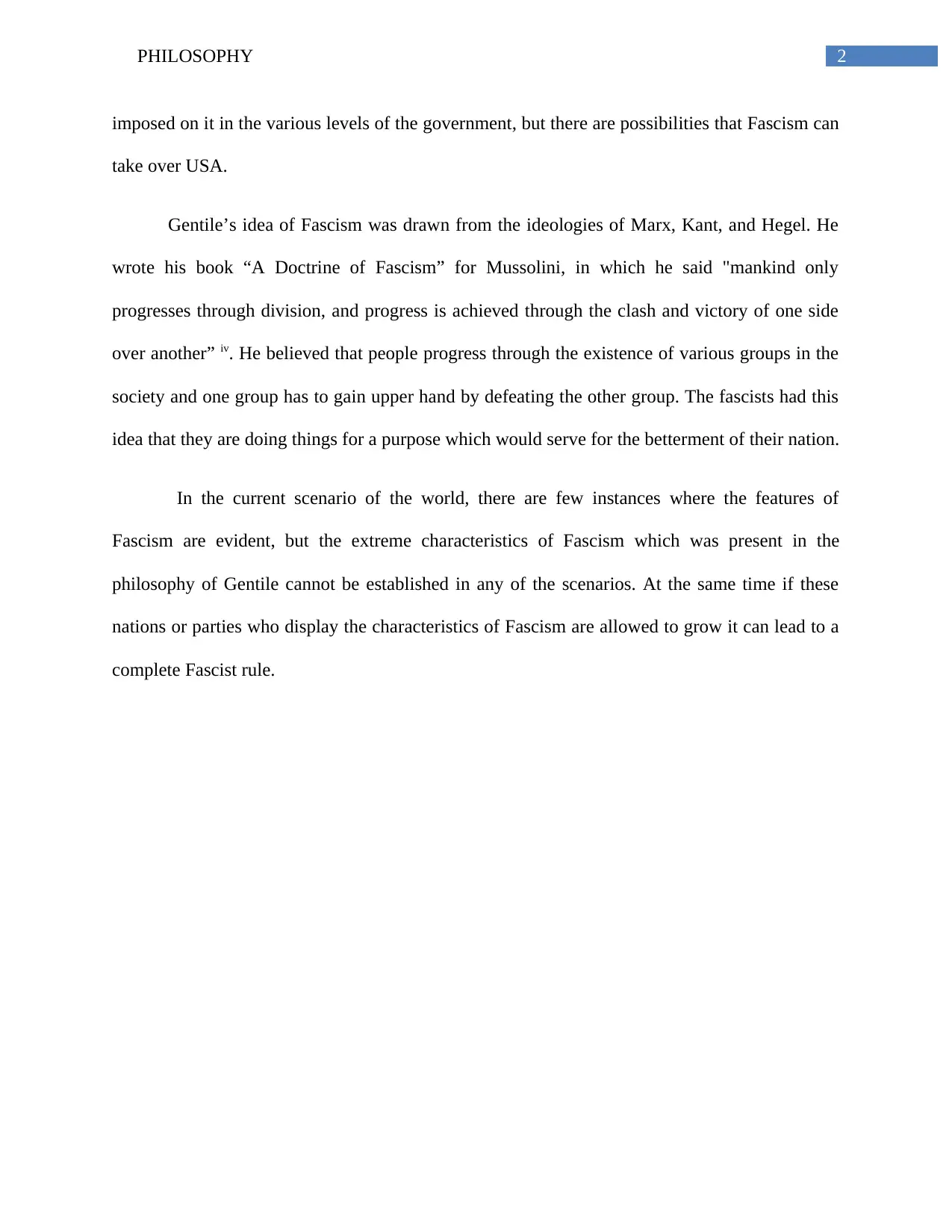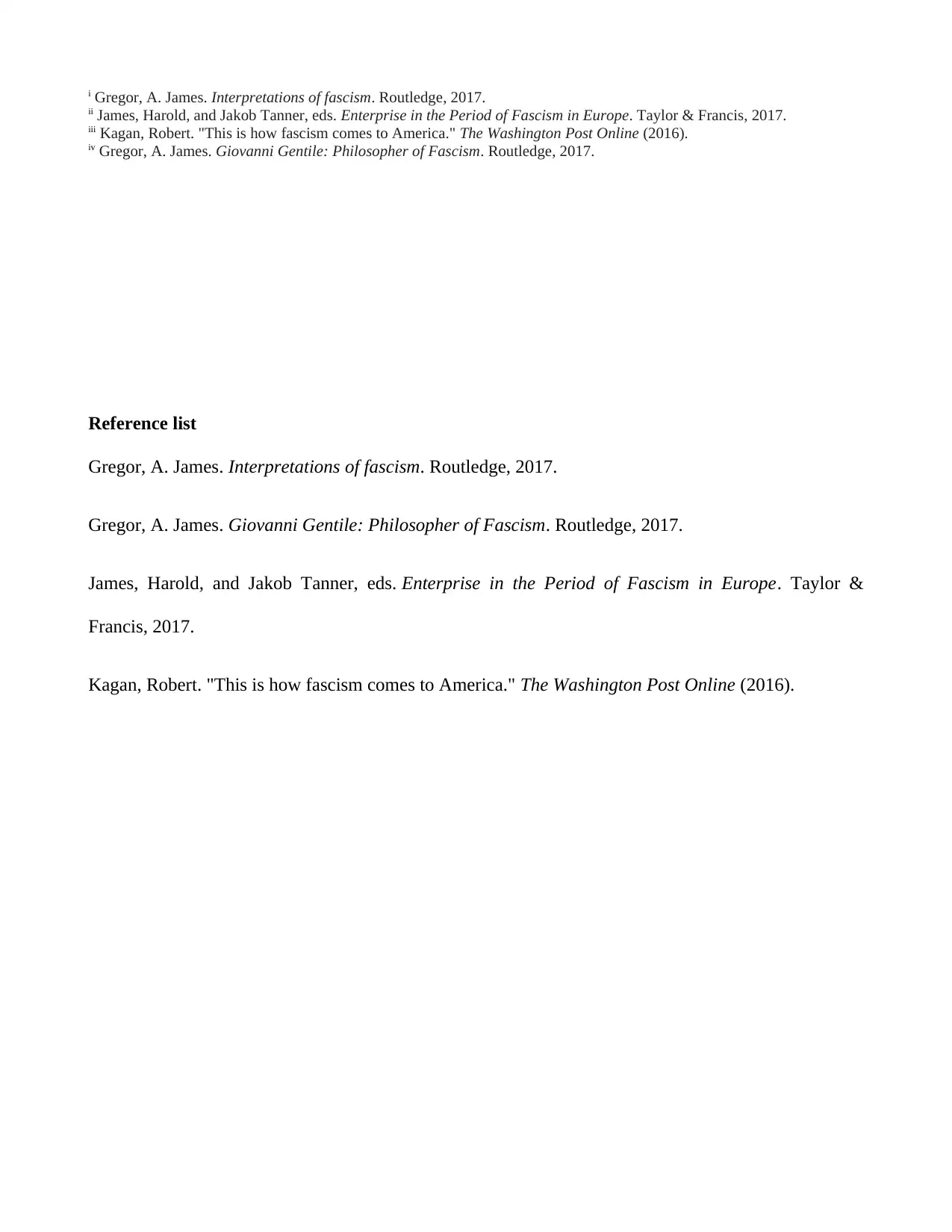Fascism: A Philosophical Analysis of Its Origins and Ideologies
VerifiedAdded on 2020/05/16
|4
|574
|369
Essay
AI Summary
This essay delves into the philosophical analysis of Fascism, tracing its origins back to the rise of Mussolini and the National Fascists Party. It examines the core ideologies of Fascism, including its emphasis on authoritarian rule, suppression of individual freedoms, and the importance of a single, powerful leader. The essay explores the historical context of Fascism, highlighting its rejection of democracy and its focus on national unity and a closed economy. Furthermore, the essay discusses the contemporary relevance of Fascism, analyzing the resurgence of similar political ideologies in Europe and the potential for authoritarian tendencies in the United States. It also explores the philosophical foundations of Fascism, particularly the ideas of Gentile, and how his philosophies influenced the movement. The essay concludes by assessing the potential for a full-blown Fascist rule in the modern world, considering both the historical precedents and current political trends.
1 out of 4










![[object Object]](/_next/static/media/star-bottom.7253800d.svg)